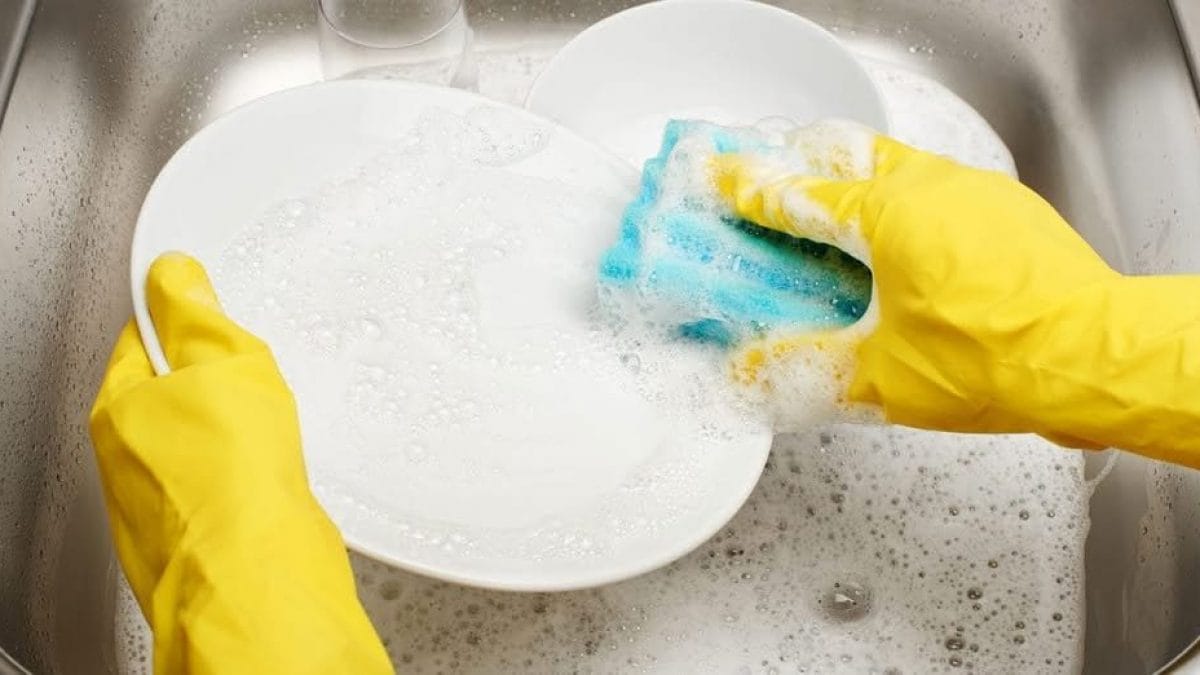
Doing the dishes is a daily chore we all begrudgingly tackle, but there’s a lurking question you may not have considered: is handwashing dishes truly clean? Spoiler alert—it’s not. If you’re someone who’s been elbow-deep in lukewarm sink water thinking you're doing a noble deed, think again.
1. The Hygiene Problem
At first glance, a shiny, hand-washed plate might seem pristine, but appearances can be deceiving. Handwashing dishes usually involves tepid water, which is ineffective at killing bacteria like salmonella or E. coli. The Centers for Disease Control and Prevention (CDC) recommend water temperatures of at least 140°F to sanitize properly—temperatures no human hand can comfortably tolerate. So, while you’re saving your skin, those germs are taking up residence on your plates. Essentially, you’re throwing a germ party and not even inviting the disinfectant.
2. Sponge Bob Germ Pants
Let’s talk about sponges—the unsung villains of the kitchen. Studies have shown that kitchen sponges are one of the dirtiest items in any household, teeming with bacteria like staphylococcus and coliform. Every swipe of your sponge transfers more bacteria onto your “clean” dishes, turning your mealtime into an unsanitary affair. Dishcloths aren’t any better, as they often sit damp and forgotten, creating a perfect breeding ground for microbes. If cleanliness is your goal, your sponge is sabotaging you.

3. The Dishwasher Is a Germ Slayer
Unlike your hands, dishwashers are built for battle. They use scalding hot water—typically between 130°F and 160°F—and powerful detergents designed to eliminate bacteria and break down food particles. Many modern dishwashers even have sanitizing cycles that annihilate germs with heat. This technology is not just a convenience; it’s a necessity for truly clean dishes. Handwashing simply can’t compete with this germ-killing efficiency. It’s like bringing a butter knife to a sword fight.
4. Dirty Lies About “Eco-Friendly” Handwashing
You might think washing dishes by hand saves water, but here’s the dirty truth: it doesn’t. Studies from reputable sources like Energy Star reveal that a full dishwasher uses about four gallons of water per cycle, whereas handwashing can guzzle up to 27 gallons to achieve the same level of cleanliness. If you care about conserving water and energy, the dishwasher is the clear winner. Your handwashing efforts might feel virtuous, but they’re more wasteful than you realize.
5. Time Is Money, and Handwashing Is a Thief
Time is one of life’s most precious resources, and handwashing dishes is a notorious time sink. Think about it: each dish must be scrubbed, rinsed, and dried—a monotonous process that steals minutes (and sometimes hours) you’ll never get back. A dishwasher, on the other hand, handles the load while you move on with your life. Why spend your evening in a soap opera when you could be watching one?

6. Soap and Gunk You Can’t See
Ever notice that handwashed dishes sometimes feel greasy or have streaks of soap left behind? That’s because handwashing isn’t consistent. You might miss a spot, fail to rinse thoroughly, or even use too much detergent. Dishwashers, by contrast, are calibrated for even cleaning and rinsing. What you don’t see on handwashed dishes—be it soap residue or lingering grime—can affect the taste of your food and even your health.
7. The Risk of Cross-Contamination
When you wash dishes in a sink full of dirty water, you’re creating a cross-contamination nightmare. That pot you soaked for hours? It’s now a germ bath, and your plates are swimming in it. Handwashing doesn’t provide a clean break between heavily soiled items and lightly used ones. Dishwashers compartmentalize and isolate items, minimizing the spread of bacteria. It’s a controlled cleaning environment versus a microbial free-for-all.
8. Protect Your Hands (and Sanity)
Let’s not forget the toll handwashing takes on your skin. Constant exposure to hot water and harsh detergents can leave your hands dry, cracked, and irritated. While rubber gloves might help, they’re cumbersome and often just as germ-ridden as your sponge. Dishwashers not only save your dishes from bacteria but also save your hands from turning into sandpaper. It’s a win-win situation.

9. A False Sense of Control
There’s something oddly satisfying about washing dishes by hand—like you’re in control of the cleanliness process. But this sense of control is a mirage. Without the precision of high heat and programmed cycles, handwashing is an exercise in futility. You’re essentially convincing yourself that clean means “looks clean,” and that’s a slippery slope to unhygienic habits.
10. The Cost of Cutting Corners
People often cite the cost of a dishwasher as a barrier, but consider this: the health risks of improper dishwashing can lead to medical bills and lost workdays due to foodborne illnesses. Investing in a dishwasher isn’t just about convenience; it’s a long-term investment in your health. Plus, modern dishwashers are more affordable and energy-efficient than ever before, making them a practical choice for most households.
;Resize,width=767;)
